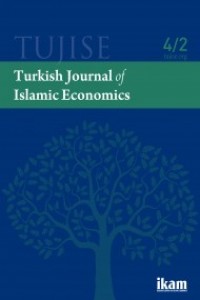Cash Waqf as an Alternative Panacea to Poverty Alleviation An Overview of Human Development in Nigeria
Öz
This study investigated how cash waqf was used to alleviate education poverty in Nigeria among the
orphans and under-privileged in Zamfara State in particular. The failure of government has deprived people of
good health, shelter, education among other things. Similarly, efforts of both private and voluntary sectors yielded
no useful results especially in sponsoring students’ education. It is undeniable that poverty has become household
problem in Africa and specifically Nigeria. The menace has deprived people of basic necessity of life hence, throw
them into serious predicament. The present study used qualitative technique hence, conducted in-depth interviews
of three types of respondents. Data gathered from the interview was analyzed using a phenomenological approach.
It is hoped that the findings will be useful to policy makers in waqf institutions and the Nigerian government to
strategize poverty alleviation inclusive of orphans and under-privileged education in order to boost the level of
literacy in the country.
Anahtar Kelimeler
cash waqf education poverty alleviation under-privileged phenomenology
Kaynakça
- Referans1
- Referans2
- Referans3
Ayrıntılar
| Birincil Dil | İngilizce |
|---|---|
| Bölüm | Makaleler |
| Yazarlar | |
| Yayımlanma Tarihi | 10 Ağustos 2017 |
| Yayımlandığı Sayı | Yıl 2017 Cilt: 4 Sayı: 2 |


